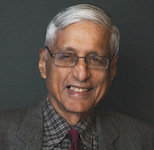Citizen American
As a hard year closes out in the US, and the electoral college voting seals Joe Biden’s win, the oft-ignored power that individuals possess in a democracy has once more been highlighted.
In America’s quaint system, the choice of a state’s voters for the nation’s president is formalised by “electors” named by the winning party, who vote one by one in ceremonies separately conducted, on the same day, in each state or federal territory. This year, the rituals were performed on December 14.
But rituals may be a misleading phrase. These “electors” could have cheated and voted against their party, that is, against their state’s verdict. However, every one of the 306 Democratic “electors” voted for Biden, and each of the 232 Republicans for Donald Trump.
This time, with Trump continuing to deny his defeat (and to rouse his supporters to somehow transform it into a win), the “electors” became targets of intimidation. Prevention of voting and even abduction was feared, but public servants saw the exercise through.
In some places, ingenuity was needed. At the last minute in traditionally Republican Arizona, which had chosen Biden over Trump, the state’s officers — loyal Republican Party members — switched the ritual’s venue to a safer place, freeing the “electors” to vote for Biden.
In this and other ways, officers and “electors” across the US overcame pressures and did their duty. In so doing, public servants in states like Georgia and Arizona probably destroyed their political futures, at least for the short term. But they saved their country’s prestige.
In India, too, doing our duty in the teeth of pressures and inducements is not a small matter, whether we are public servants, or members elected to a local, state or national council, or just citizens.
Yielding to pressure from Trump and his base, many Republican members of Congress shamelessly endorsed a Supreme Court plea, initiated by Texas’s attorney general, to invalidate the popular vote in Pennsylvania, Michigan, Georgia and Wisconsin. In a decision that showed that the Supreme Court, too, knew its duty, all its nine justices, including the three nominated by Trump, decided against entertaining the brazen plea. Though Trump reacted by tweeting that the court lacked “wisdom” and “courage”, the justices had shown precisely those virtues.
Biden’s dislodging of Trump is, therefore, not the former’s personal feat. It is the outcome of duty done by a great many.
Equally crucial to the outcome was the outspoken and broad rejection of the continual Trumpist hint, obvious to everyone and appealing to many, that America belonged primarily to its Whites. Twinned to this insinuation was a call against “pampering Blacks”. In refutation, Americans said on social media, in newspapers, on TV, in daily conversation, and in marches on the street that their country belonged to all, and that the real problem was the neglect of Black needs. Confronting the Trumpist line was thus not left to an Obama, a Biden or a Kamala Harris. It became an American duty.
The parallels for India are plain. While Adivasis, Dalits and Muslims make up “India’s Blacks”, among these worse-off sections Muslims are assigned the role that Trumpism reserves for Blacks. This is where India’s national life has been found wanting. Even though every index of income, wealth, housing, health, education or security finds the Muslim at the bottom, a Junaid or a Jamila, a Yasmin or a Yusuf, will rarely get support, even if attacked by a mob.
Unless Trump tells his American adorers (which he won’t) that he has been defeated, they will not accept that truth. Unless a Narendra Modi, an Amit Shah or an Adityanath says to Hindu nationalism’s fervent adherents — what seems so hard for the three to say — that a Muslim’s life is as valuable as a Hindu’s, the masses of adherents will not accept that truth.
That still leaves crores of other Hindus and other Indians who would welcome reminders of the equal value of every human life, and of the tolerance which Indians in their vast majority have always cherished. For any of us to wait for some great leader to provide these reminders, or to keep silent until a unified opposition emerges, is to acquiesce in daily deeds of injustice.
To Indians and others, America 2020 has shown that the “ordinary” citizen has both the ability to call out a wrong and the duty to do so.
